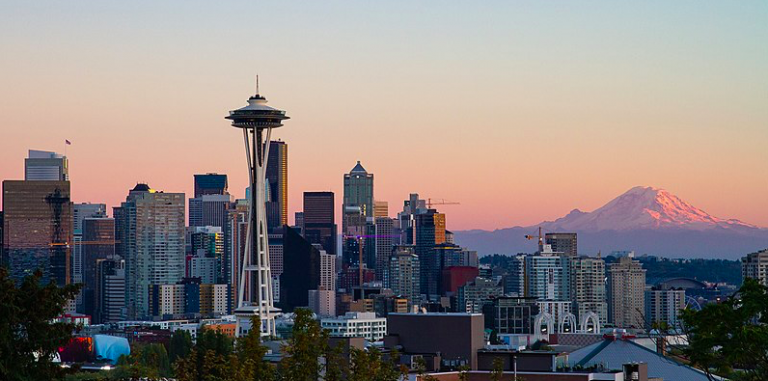Published on July 16, 2020

In recognition of the intense needs of local governments around COVID-19 response and recovery, the LCY program has compiled a list of existing UW courses whose faculty and students are seeking to assist local communities in COVID-related projects. Most projects can start in Autumn 2020 — some as early as Summer 2020. The list of projects is sorted by UW college, department, and faculty. If any of these projects resonate with your community’s needs, please contact the Livable City Year program so that we may connect you with the faculty for further discussion.
Urban Design and Planning
Neighborhood Change Through the Lens of Gentrification and the Pandemic
Faculty: Mackenzie Waller, Urban Design and Planning; Ariana Cantu, Social Work
Course: Special Topics in Urban Design and Planning / Special Topics in Generalist Social Welfare
Quarter: Autumn 2020
COVID-19 Application and Deliverables: This course examines neighborhood change through the lens of gentrification and the pandemic, particularly highlighting the historical impacts of racism, white supremacy, and capitalism as they contribute to gentrification and the pandemic. Groups of interdisciplinary students from the College of Built Environments and the School of Social Work select a neighborhood site to research and come up with visual tools and recommendations for how to address these issues, with a focus on collaboration and community engagement. Students use StoryMaps, which is a visual mapping and narrative tool, to tell the history of a place and its people, as well as the impacts of the pandemic and gentrification on the community. From this past quarter, several of the community organizations we partnered with and interviewed have asked that they be given access to the StoryMap tool to use for their own community purposes. Students can also make recommendations and suggest next steps about ways to potentially address community needs surrounding the pandemic and gentrification, using this as a tool to bring community efforts together.
Ideal Partner: Any community-based organization being impacted by the pandemic and gentrification in the Seattle/King County area
Health Services
Examining and Addressing Health Disparities
Faculty: India Ornelas, Health Services
Course: Health Disparities
Quarter: Winter 2021
COVID-19 Application and Deliverables: Students will examine patterns of health across social groups, with a focus on designing research and public health programs to address health disparities. Possible deliverables include writing up data or creating data visualization, making infographics, creating health education materials, as well as a literature review or some other kind of evidence review.
Ideal Partner: county public health departments
Urban Studies at UW Tacoma
Design Intervention in Pedestrian Corridors and Public Spaces
Faculty: Bara Safarova, Urban Studies
Course: Urban Design Studio
Quarter: Autumn 2020
COVID-19 Application and Deliverables: This urban design studio addresses local stakeholders’ needs, focusing on neighborhood-level design interventions. Possible COVID applications may include identifying main pedestrian corridors and public spaces in need of adapting to social distancing needs, developing strategies for side walk widening / street closures / circulation patterns, etc., and identifying areas where an intervention could have an impact. Deliverables could include drawings and visualizations of proposals. The students are undergraduates so the project would be an initial stage and not ready for implementation, but they could help stimulate discussions and interest.
Ideal Partner: City of Tacoma or nearby cities, specifically partners that have jurisdiction over the right of way and public spaces
Analysis of Social Distancing Conditions: Issues and Opportunities
Faculty: Bara Safarova, Urban Studies
Course: Urban Design Studio
Quarter: Winter 2021
COVID-19 Application and Deliverables: This class could be used to analyze existing social distancing conditions on a site in Tacoma (downtown or other) or nearby city. The class could provide an analysis of existing right of way, streets, public spaces, and circulation with regards to social distancing issues and opportunities. This class is a final project for undergraduate students; the results would need further professional input, but could stimulate discussion and could identify catalyst projects.
Ideal Partner: City of Tacoma or nearby cities, specifically partners that have jurisdiction over the right of way and public spaces
See the full list on the Livable City Year website.
Originally written by the Livable City Year program.